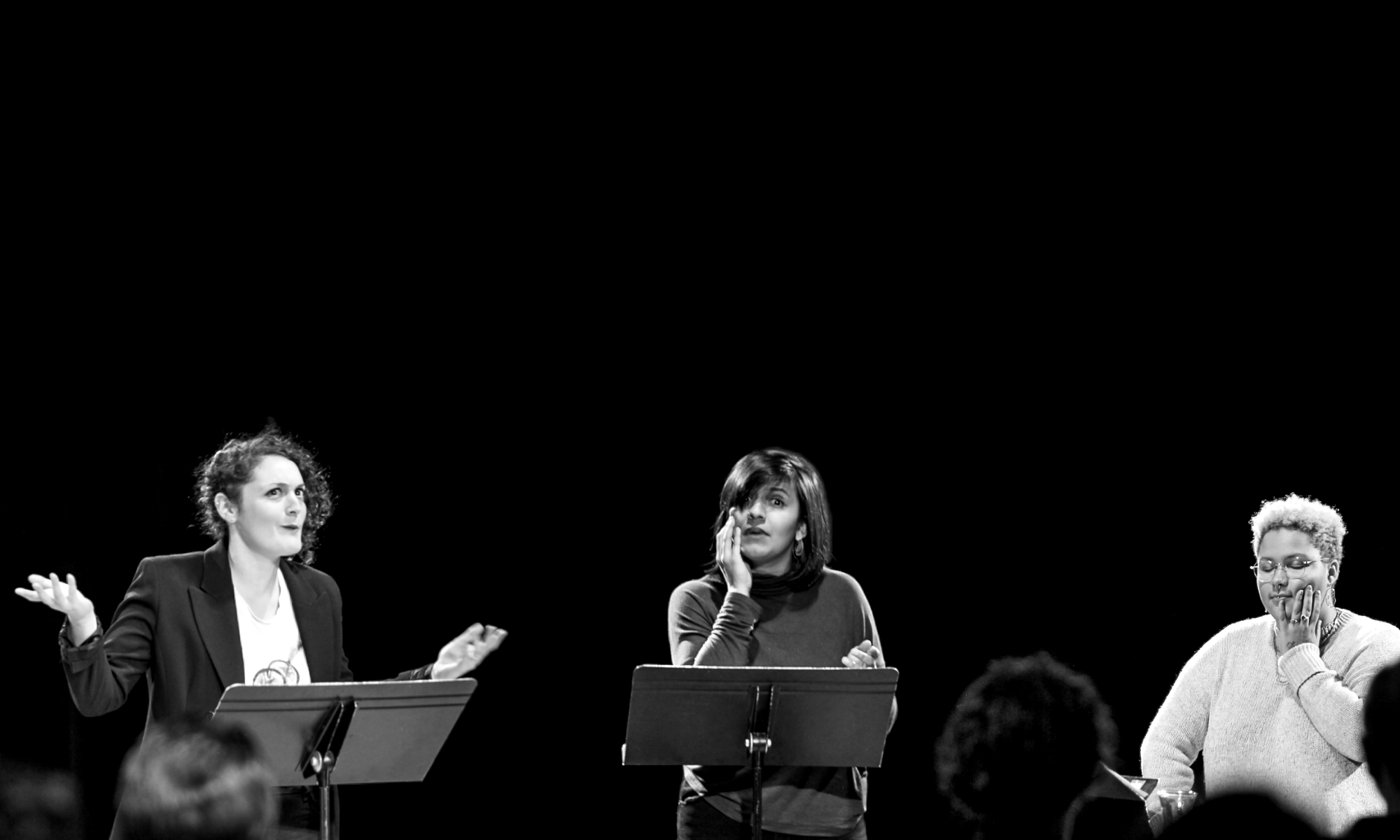by Liam Zarrillo
The storytelling process has arrived at a fascinating and complex intersection. Historically speaking, stories and stages have seen a devastating lack of representation of folks who come from marginalized or barrier-facing communities. (This has been both in terms of characters in stories, as well as the artists crafting the stories themselves.) It appears that we are now reckoning with this reality and want to do something about it.
But what do we do? Who do we need to see in stories and on stages? Who has the right to include such characters? Surely the answer cannot be: one may only craft characters that resemble one’s exact lived experience. No, it is necessary for us to be writing stories that are reflective of life. Real life. And real life is diverse.
For myself, from this aim towards authenticity and accountability, a new professional and artistic role was borne. It falls under several titles, depending on the project/project’s phase: that of cultural consultant, experiential consultant or cultural dramaturg.
For over a year, I have been working in this capacity on a play called O Death by Scout Rexe. This play has received support from several different companies across the country, and has been championed for years by Playwrights’ Workshop Montréal.

While I had worn the hat of cultural consultant before coming on board O Death, it is through my experience working on this project that I have begun to truly shape and hone my practice.
Given that O Death is a queer wok, it makes perfect sense that our time together has followed a queer process. A “queer process” can be defined in endless ways, as what makes it “queer” is subjectively defined by the participants themselves. As someone who identifies explicitly as a “queer theatre artist”, my definition of a queer process is one that is inclusive of, but extends beyond solely contemplations on gender & sexuality. I consider a queer process to be one that exists without any rigid pre-existing boundaries or structures. One that is constantly interrogating norms and is flexible and open to redefinition and rearticulation. It is reflective of and responsive to the needs of those involved in an ever-evolving way.
Because my experience working on O Death through PWM has been held inside of this queer context, I have had the space to experiment with and perform this new role in a myriad of ways. O Death tells the story of a trans musician (James) and his queer femme sister (Caddy) hit with several significant obstacles as their music careers are about to take off. I was initially brought on to have some chats and dig in on the authenticity of James’ character. Since then, I have had countless thoughtful sessions and conversations with the playwright. I have read several drafts. I have fed back and been heard. I have been encouraged to bring my dramaturgical experience into my role, allowing for dialogue not only about the authenticity of the trans character, but how his experience fits into his narrative journey. This non-exhaustive list just scratches the surface of such a formative process.
And now, when I sit down with playwrights or artistic directors to discuss a new cultural consultant contract, I am able to articulate how I work, what I can bring to the table, and offer them options about how we might proceed. The number one goal being inviting in, consensual teaching, healthy boundaries and whatever most serves the story and project at the given moment.
This intersection of authenticity meets accountability is complicated, it is nuanced. I do not believe there is one hard and fast, objective answer or solution to the challenge. There is so much to be mindful of when interacting with the lived experiences of others. We need to ensure we are not taking up space that should belong to others. It is not our right to tell the stories of others, when folks can and should be given the opportunity to tell them for themselves.
I do believe it is our responsibility, however, as arts makers to consider this challenge of diversifying stories and stages, and how we might rise to meet it. There might be no “overcome” in a world as entrenched in problematic and oppressive systems as ours… but I do believe that there is “try”. There is “listen”. There is “do better than the last time.” There is actively working towards the kind of change we want to see.

Liam Zarrillo is a theatre artist, educator and consultant based on Treaty 1 territory.
They love and live to agitate, investigate, experiment and uncover. They work with many theatres & companies in Winnipeg and beyond as a playwright, actor, director and cultural dramaturg.
Upcoming works for Liam include The Outside Inn (co-written with Sharon Bajer) premiering at Theatre Antigonish this fall and Volare premiering at Prairie Theatre Exchange this coming spring.
They will also be performing in Daniel Thau-Eleff’s Narrow Bridge, premiering at the Winnipeg Jewish Theatre in early 2023.
















